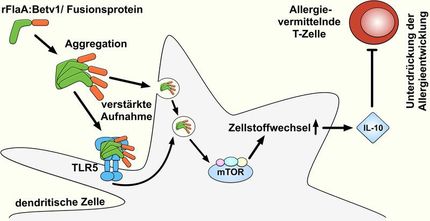Avidex establishes research collaboration with Ludwig Institue for Cancer Research
Advertisement
Avidex announced that it has established a research collaboration with the Ludwig Institute for Cancer Research (LICR). The collaboration is based on one of Avidex's soluble monoclonal T cell receptors (mTCRs) which targets the tumour associated antigen NY-ESO-1. NY-ESO-1 was discovered by researchers at the LICR and is one of the most immunogenic tumour antigens known. It is expressed in a substantial proportion of patients in a range of cancers, making it an extremely attractive target for cancer therapies.
Avidex has an existing product targeting NY-ESO-1, EsoDex®, which is in pre-clinical development. EsoDex® is a fusion protein of an NY-ESO-1 targeting mTCR and interleukin 2 (IL-2), a potent immunomodulator.
This new collaboration combines for the first time the leading research of Professor Elke Jäger of the LICR Affiliate Center at Krankenhaus Nordwest in Frankfurt, who is investigating the role of NY-ESO-1 in protection against cancer, with Avidex's expertise in generating soluble high affinity T cell receptors to target immune effector molecules to NY-ESO-1 expressing tumours. Avidex evolves its mTCRs to high affinity using phage display so that they become useful therapeutically. TCRs isolated from T cells without evolution have very low affinities and residence times on the NY-ESO-1 cancer antigen of only a few seconds and have no use as potential therapeutics.
Dr Neill Moray MacKenzie, Chief Business Officer at Avidex said, "Targeted immunotherapeutic approaches represent a major research and development focus in cancer both in academia and industry. Until recently only antibody or antibody-like technologies have been used in these approaches. Avidex's mTCR technology now allows intracellular tumour associated antigens, such as NY-ESO-1, to be targeted for the first time with TCRs binding peptides expressed on HLA. This has opened up a new set of tumour antigens in this niche that Avidex is able to exploit."
























































